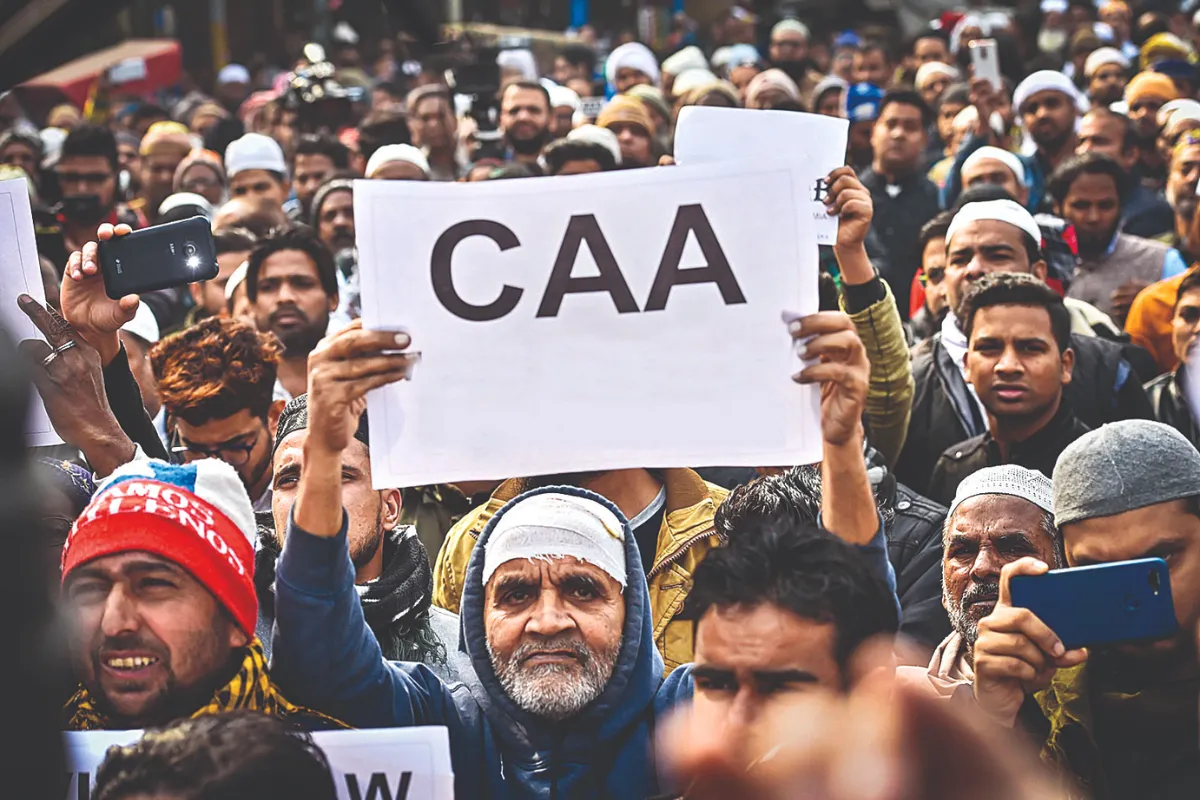The Citizenship Amendment Act aims to provide citizenship to religious minorities from neighboring countries (Pakistan, Afghanistan, and Bangladesh) who have faced persecution and seek refuge in India. Sources say the government has set up an online system for people to register, and they’ve already tested it out. The law is meant to assist refugees from these countries who don’t have proper documents. While the Bill seeks to redefine illegal migrants, it notably excludes certain persecuted Muslim sects such as Shias and Ahmadis from Pakistan. According to sources, the implementation of this system may begin as early as next month.
What is Citizenship Amendment Act?
The Citizenship Amendment Act (CAA) 2019, enacted by the Indian Parliament, aims to provide citizenship to religious minorities from neighboring countries who faced persecution. Specifically, it offers a path to citizenship for Hindus, Sikhs, Jains, Buddhists, Parsis, and Christians who arrived in India before December 31st, 2014, and can demonstrate religious persecution in their home country. The law, which was introduced as the Citizenship Amendment Bill (CAB) 2019 before being passed and enacted, has sparked significant controversy and opposition for various reasons.
Background and Purpose
Religious persecution in countries like Pakistan, Afghanistan, and Bangladesh has been a longstanding issue, particularly for minority communities. The CAA seeks to address this by providing refuge and citizenship to those who have faced persecution on religious grounds in these neighboring nations.
The government says it’s important to help people who are suffering because of their religion. They also say the law treats everyone fairly, no matter their religion in India.
Opposition and Concerns:
However, the CAA has faced strong opposition from various groups, raising concerns about its potential impact on India’s secular fabric and its compliance with the Constitution. Here are some key arguments against the CAA:
- Violation of Equality: Critics argue that the CAA discriminates against individuals based on religion, violating the principle of equality enshrined in the Indian Constitution. They highlight the exclusion of Muslim minorities fleeing persecution in the same countries, raising concerns about the Act’s discriminatory nature.
- Undermining Secularism: Opponents argue that the CAA undermines India’s secular character by prioritizing specific religious groups. They believe it contradicts the principle of treating all religions equally and could potentially contribute to a sense of marginalization among excluded communities.
- Impact on Local Communities: Regional parties in states like Assam, with significant indigenous populations, express concerns about the CAA potentially altering the demographic composition and straining local resources. They fear an influx of new citizens could impact their cultural identities and economic opportunities.
Exemptions in Citizenship Bill 2019
The Citizenship (Amendment) Bill has exceptions for specific regions in the North-East. It won’t affect tribal areas in Assam, Meghalaya, Mizoram, and Tripura. This means Arunachal Pradesh, Nagaland, and Mizoram, as well as most of Meghalaya and some parts of Assam and Tripura, won’t be impacted by the Citizenship (Amendment) Bill.
Who will benefit from CAA
The potential beneficiaries of the Citizenship Amendment Act (CAA) are specific groups of undocumented immigrants from Afghanistan, Bangladesh, and Pakistan. These groups include:
- Hindus
- Sikhs
- Jains
- Buddhists
- Parsis
- Christians
Should meet the following criteria:
- Belong to a religious minority: Hindus, Sikhs, Jains, Buddhists, Parsis, and Christians.
- Arrived in India before December 31st, 2014.
- Faced religious persecution in their home country.
If they meet these criteria, the CAA provides them with a path to acquiring Indian citizenship through a faster and more streamlined process compared to the standard naturalization procedures.
Public Opinion and Impact
Public opinion on the CAA remains divided, with supporters emphasizing its humanitarian aspects and opponents highlighting concerns about discrimination and communal tension. Polling data and social media trends reflect a range of perspectives on the law, indicating a complex and ongoing debate within Indian society.
